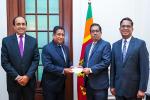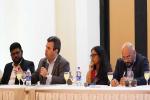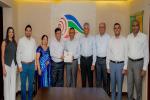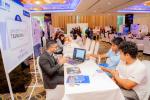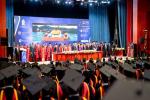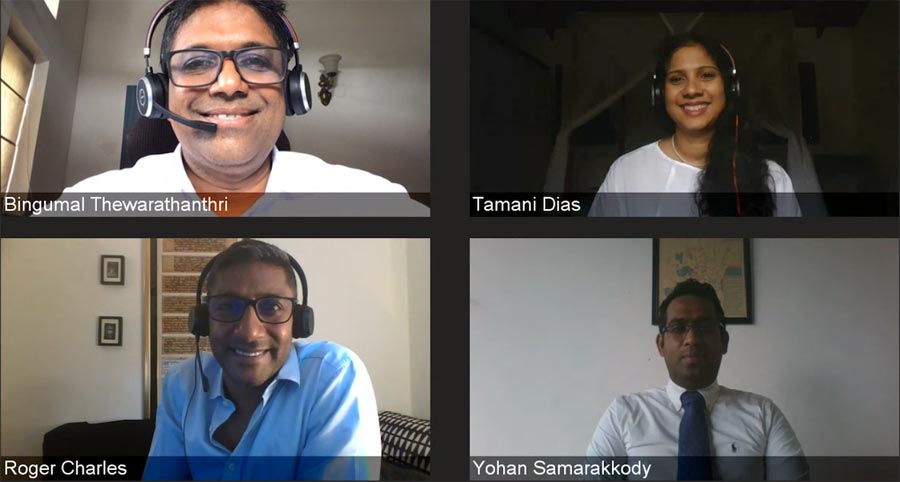The webinar, conducted by Roger Charles, Executive Director for Environmental and Social Risk Management, Standard Chartered PLC, focused on the current challenges as well as the future aspects of Environment and Social Risk Management.
During the workshop, Charles shared some of the Group’s best practices for incorporating sustainability considerations into lending decisions to help local banks understand how they can evaluate their clients using ESRA criteria.
He pointed out that through the integration of Environmental, Social and Governance (ESG) in financing decisions, financial institutions can help minimise the negative impact that its business activities can have on the communities as well as on the environment.
Commenting on the timeliness of the workshop was Tamani Dias, Executive Director and Head, Local & International Corporates, Standard Chartered Sri Lanka.
She said, “We recognise that our success as a bank is intrinsically linked to the health and prosperity of our market.
For us, sustainability is about creating long-term value for our clients and working in partnership with our stakeholders to make a positive economic and social contribution.
We hope that this workshop will encourage our local financial institutions to ‘Do No Harm’ and ‘Do More Good’ by integrating ESRA criteria in their financing decisions and also, consider Standard Chartered as their trusted ESG partner moving forward.”
Charles noted that in 2020 alone, Standard Chartered had conducted over 18,000 bank-wide client assessments against the Bank’s 7 position statements, trained over 1,600 frontline and risk staff in environmental and social risk, in addition to reviewing over 1,000 clients and transactions to ensure that all business activities have adhered to international standards on sustainability and best practice.
This webinar was one of the first in a series of online workshops to be conducted by Standard Chartered in this space as part of its commitment to its stand on ‘Accelerating Zero’, in terms of helping emerging markets, such as Sri Lanka, to reduce carbon emissions as fast as possible, without slowing development, thereby putting the world on a sustainable path to net zero by 2050.
Roger Charles has over 20 years of in-depth expertise in several sectors including energy, shipping, manufacturing, and agribusiness including forestry and palm oil.
His areas of expertise include technical environmental and safety engineering, impact assessment, and corporate sustainability strategy, climate change and energy transition.

